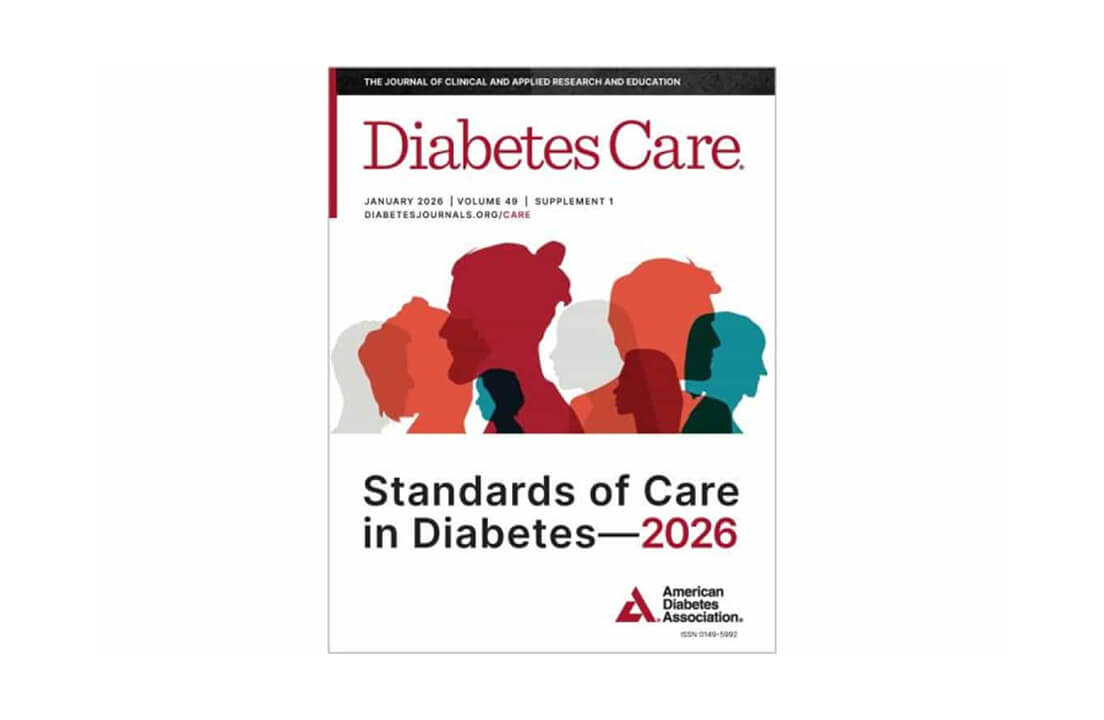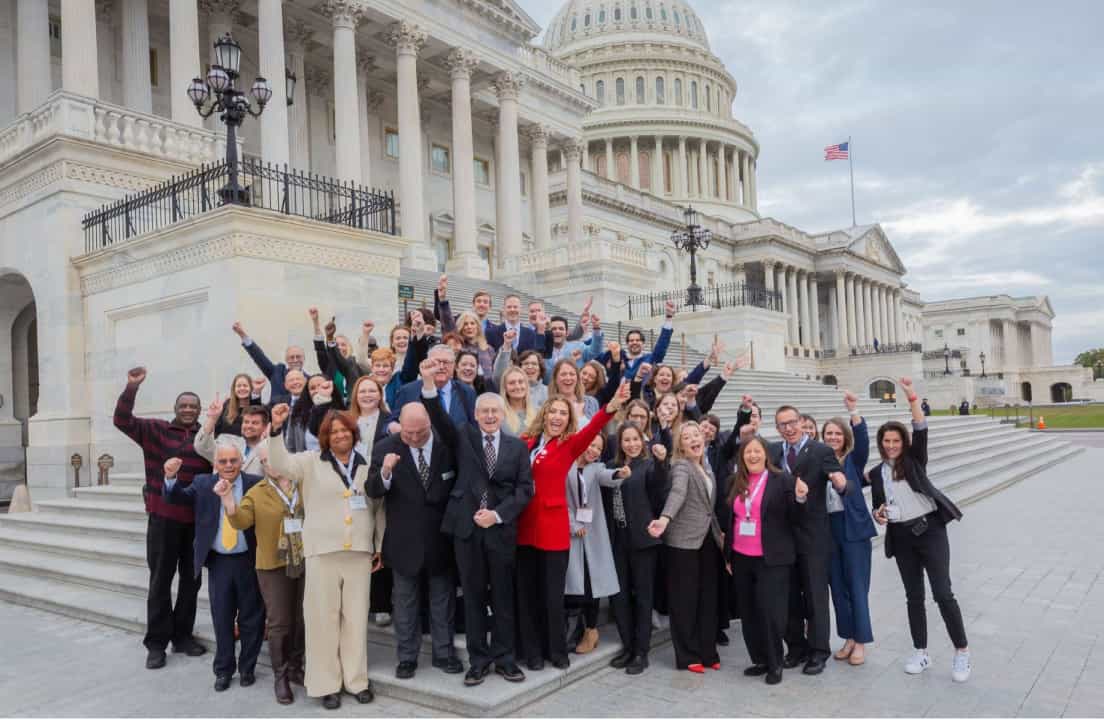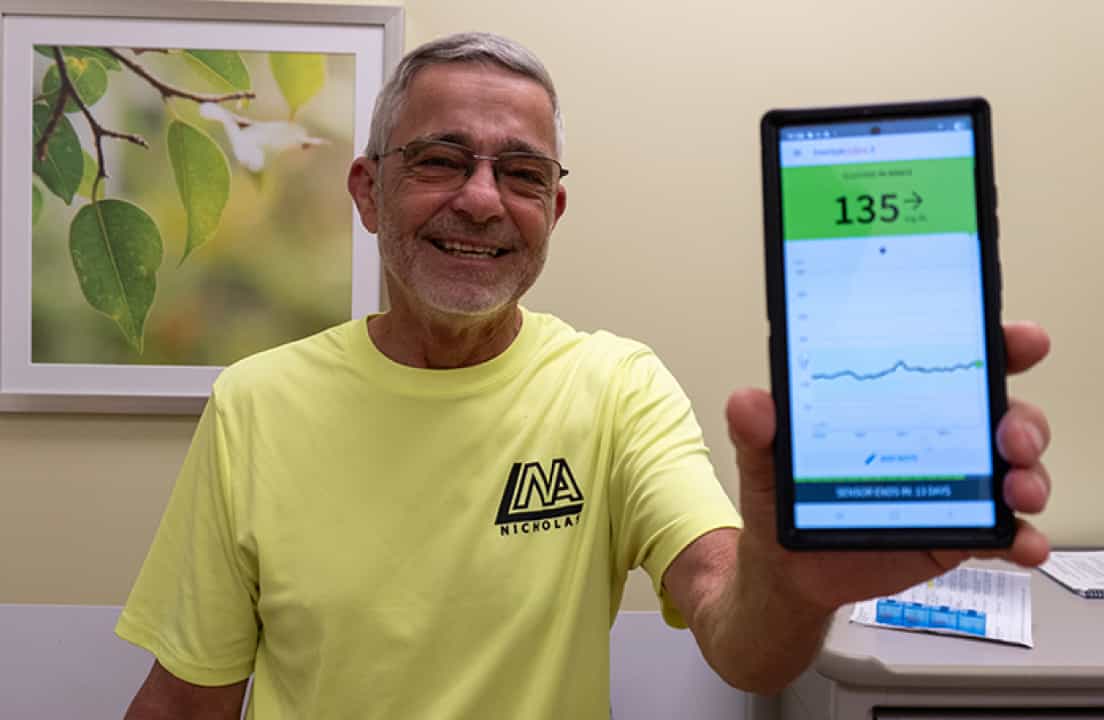T1D Guide
T1D Strong News
Personal Stories
Resources
T1D Misdiagnosis
T1D Early Detection
Research/Clinical Trials
ADA CEO Charts Future of Diabetes Innovation
The 2025 American Diabetes Association’s (ADA) 85th Scientific Sessions marked a historic year in the fight against diabetes. This annual event brought together a global community of healthcare providers, researchers, advocates, and innovators—all united by a shared mission to advance diabetes care. Stay tuned as we continue to highlight key takeaways, inspiring moments, and the vision for the next chapter in diabetes care.

Marking a milestone year, the 2025 American Diabetes Association’s (ADA) 85th Scientific Sessions took place in Chicago, Illinois, at the McCormick Place Convention Center. This annual conference offered attendees the opportunity to share insights and learn about groundbreaking advancements in diabetes research.
Healthcare professionals, individuals living with diabetes, entrepreneurs, nonprofit leaders, and others from around the world gathered to engage with a diverse global community. This group brought unique backgrounds, areas of expertise, and goals for diabetes, enriching the conference with a wide range of perspectives and experiences.
Strategic Plans Guided by Shared Community Values
Charles 'Chuck' Henderson, the Chief Executive Officer (CEO) of the ADA, set the tone for the event. A full theater joined him in recognizing 85 years of progress.

“This is where we all come together to transform the landscape of diabetes,” Chuck said. “For 85 years, the ADA has joined forces with the best researchers, scientists, and professionals like yourselves to advance our shared vision of a world free of diabetes.”
The atmosphere in the room was both composed and eager. People gathered promptly to start the event, looking forward to the days ahead filled with knowledge, insights, networking opportunities, and introductions to new diabetes technology and treatments.
More importantly, attendees anticipated the motivation and reinvigoration they would gain over the four-day conference. Although people come to ADA for various reasons, there are more shared motivations than individual ones.
The interactive nature of the event provided ample opportunities for attendees to connect, share ideas, and form collaborations.
“While we should celebrate the progress we’ve made in the fight to end diabetes, we all know there is still much work ahead of us all in this fight,” Chuck said. “The scientific sessions represent the ADA’s dedication, along with yours, to cutting-edge research and community support.”
Reflecting on recent advancements, Chuck presented the ADA's three-year strategic plan, which is guided by the organization's four pillars: research, advocacy, education, and connection. The ADA focuses on diabetes prevention and management, health access, nutrition and wellness, obesity, and primary and collaborative care while working across these pillars.
The plan acts as the ADA’s north star, illuminating the organization’s efforts to double down on the best resources for everyone impacted by all types of diabetes and obesity, as well as for healthcare teams who are a part of their care journeys.
“Our focus on diabetes prevention and management is foundational to everything we do,” Chuck said. “As we strive to achieve our vision of a world free of diabetes and all its burdens…you will see it woven throughout our focus areas discussed today.”
Diving Deep into the ADA’s Core Pillars
Chuck spoke clearly about the ADA’s goals and strategic pillars, highlighting the reasons behind them. Regarding the focus area of health access, Chuck shared the following commitments from the ADA:
- Be a voice for under-resourced individuals and communities that are disproportionately impacted by diabetes.
- Improve access to diabetes education and resources.
- Foster trust and address barriers to care.
- Ensure the research the ADA supports addresses the needs of all populations and the social determinants of health.

“As we think about advocacy, we’re pushing hard on policymakers to approve policies and funding that ensures everyone with diabetes and obesity has affordable access to the care they need and absolutely deserve,” Chuck said. “On the education level, we plan to continue to equip healthcare professionals with the information and tools they need to engage on the community level and meet patients where they are.”
The ADA plans to work locally to provide understandable, evidence-based education and improve health literacy so that people with diabetes can advocate for themselves in the healthcare setting, whatever their socioeconomic circumstances.
“Nutrition and wellness is an area the ADA has long been focused on, but has recently had a national spotlight on across all chronic conditions,” Chuck said.
The ADA promises to be a trusted authority in this topic area, supporting individuals in building healthy habits.
“There’s a lot of research in this area…but the research is only as important as the action it inspires,” Chuck said. “Thus, we aim to better draw the connection between nutrition and wellness research and the positive impact putting it into practice has on individuals.”
On the advocacy front, the ADA acknowledges the gaps and disparities individuals face in achieving proper levels of wellness and balanced nutrition.
“We will continue to support and elevate policies that ensure appropriate nutrition and wellness tools and environments are accessible by everyone,” Chuck said. “As we think about education and community connection, related to wellness, it is very similar to our objectives around research in this area. It’s about ensuring that healthcare professionals and people living with diabetes and obesity have the ability to turn knowledge and research into action.”
A Commitment to Destigmatizing Obesity
Another prevalent theme in the sessions, highlighted in Chuck’s opening speech, was obesity. Chuck shared two alarming statistics regarding its prevalence:
- Today, more than 2 in 5 U.S. adults live with obesity.
- Obesity accounts for up to 53% of new cases of type 2 diabetes (T2D) every year.

The ADA wants to change the conversation on obesity, removing the stigma and shame often associated with it, treating it like the chronic disease that it is.
The ADA shared that it intends to:
- Advance evidence-based and translational obesity science, establishing practical approaches for the improvement of health and well-being.
- Promote access to obesity and weight prevention, management, and care interventions while removing the associated stigma and bias.
- Serve as the trusted source for evidence-based and translational obesity education.
- Empower and support communities in taking action to achieve overall wellness.
The ADA’s Standards of Care support healthcare professionals in addressing weight bias and stigma with their patients.
The Vice President of the Obesity Association at the American Diabetes Association recently joined the organization to support this mission. Dr. Samar “Summer” Hafida is an endocrinologist who maintains her assistant professorship of medicine at Boston University (BU). Samar specializes in obesity, diabetes, and complex metabolic disorders.
Key Themes of the 85th Scientific Sessions
Another recent addition to the ADA's leadership team is Dr. Osagie Ebekozien, MD, MPH, CPHQ, who serves as the organization's first Chief Quality Officer. Osagie followed Chuck's lead in inaugurating the ADA's 85th Scientific Sessions, sharing his personal experiences in navigating diabetes, discussing the standards of care and their applicability, and then welcoming more ADA leadership for an engaging panel discussion.

This year, attendees had the opportunity to participate in 200 speaker sessions, view 2,100 abstract presentations, and engage in the third annual innovation challenge, where emerging companies pitched their ideas to potential funders. This year’s innovation challenge winners include Jennifer Anderson of KiHealth, Greta Preatoni of MYNERVA, and Mark Esposito of Kayothera.
This programming, along with a dynamic exhibition hall of vendors and networking opportunities throughout the city of Chicago, made for a cup-filling experience. Key themes explored at this year’s sessions included:
Technology and Innovation
From continuous glucose monitors (CGMs) to automated insulin delivery (AID) systems, cutting-edge tools were at the forefront, particularly advancements in accessibility, interoperability, and real-world outcomes.
Equity in Diabetes Care
Numerous sessions focused on health disparities, access, and treatment options, highlighting the necessity for more inclusive research and community-centered care models.
Obesity, Type 2 Diabetes, and Cardiometabolic Health
There was an expanded focus on obesity medications, weight management strategies, and reducing cardiometabolic risk.
Type 1 Diabetes Cure and Prevention Trials
Updates on immunotherapy, beta-cell preservation, and screening protocols generated meaningful hope and discussion.
Mental Health and Quality of Life
There was a growing recognition of the psychosocial burdens associated with diabetes and the importance of holistic care.
Attendees can now replay the sessions through the ADA conference portal. If you did not attend but would like access, you can still register for the virtual recordings through the conference website, which is linked throughout this article.
Join the Magic of the ADA’s Scientific Sessions
Attending the American Diabetes Association’s scientific sessions offers numerous benefits, including access to groundbreaking data, networking with global experts, and engaging in cross-disciplinary learning. These sessions are at the forefront of leading research and advancements in diabetes, gathering the “who’s who” in diabetes annually—at a new location each year—across the U.S.
The experience is incredibly impressive, immersive, and educational. There are endless opportunities for collaboration, and the atmosphere is charged with inspiration and momentum. It’s truly remarkable to be surrounded by individuals who share similar goals, experiences, and intentions.
If you want to be part of this community, consider attending next year’s scientific sessions in New Orleans, Louisiana, at the Ernest N. Morial Convention Center, from June 5 to 8, 2026. Also, mark your calendars for the ADA’s 2026 Clinical Update Conference, taking place from February 6 to 8 at the Marriott Marquis in Houston, Texas.

The diabetes community welcomes you to join in the evolution of diabetes, working together towards a resolution to end it!








.webp)

.webp)
.jpg)

.jpeg)
.jpg)
.jpg)

.jpg)
.jpg)
.jpg)

.jpg)

.jpg)

.jpg)
.jpg)



.jpg)



.jpg)




.jpg)

.jpg)



.jpg)

.jpg)




.jpg)
.jpg)
.jpg)
.jpg)
.jpg)
.jpg)
.jpg)

.jpg)
.jpg)

.jpg)


.jpg)
.jpg)
.jpg)

.jpg)

.jpg)














.jpg)


.jpg)







.webp)











.webp)









.webp)